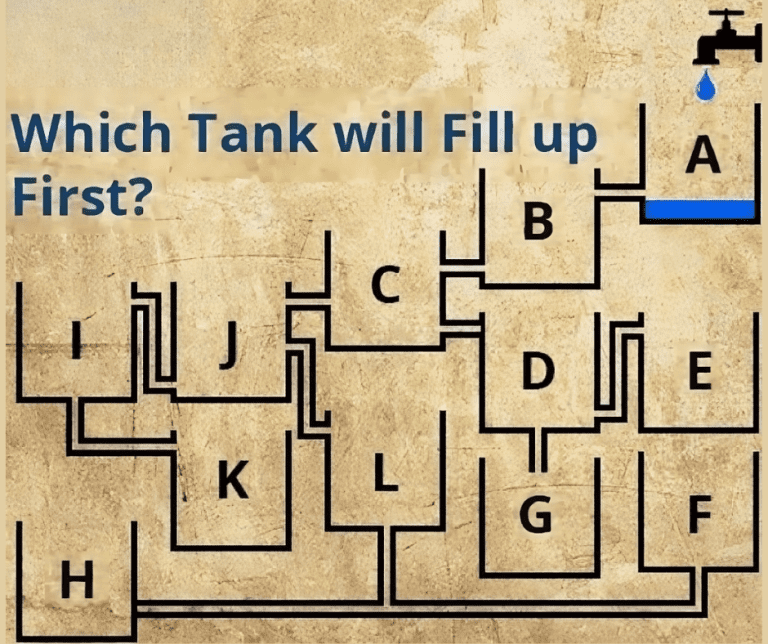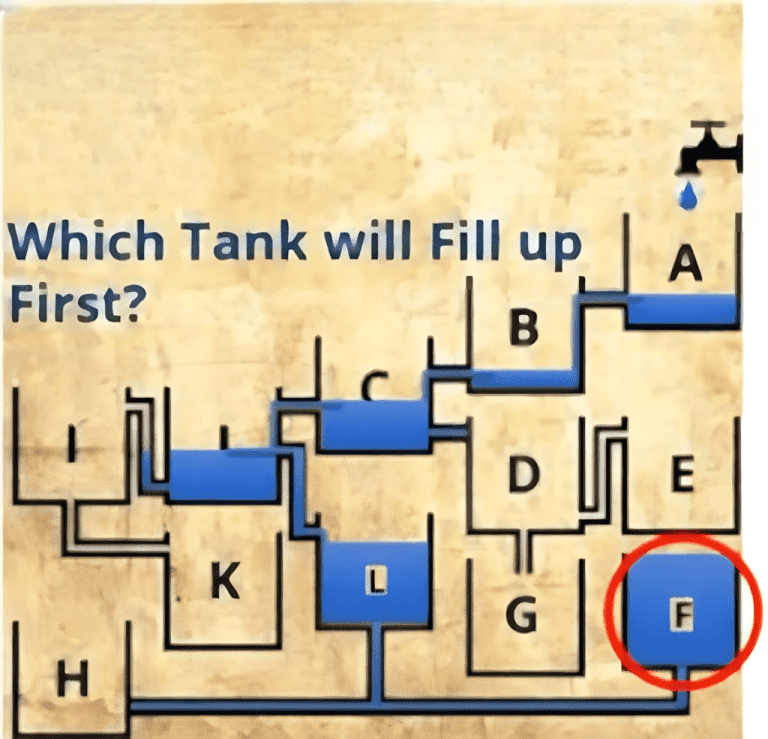Which Tank Will Fill Up First?
In the realm of intellectual puzzles, few can match the allure and intrigue of the “Which Tank Will Fill Up First?” conundrum. This deceptively simple question has captured the imagination of problem-solvers worldwide, prompting a surge of analysis, debate, and a relentless pursuit of the elusive answer.

At first glance, the layout of the tanks and their interconnected network may seem straightforward, but it is in the meticulous examination of these subtleties that the solution lies. The key, as it turns out, lies in the lone “F” tank among the options presented. While the other tanks may appear more prominent or complex, it is this unassuming letter tank that holds the key to the puzzle.
By carefully analyzing the flow and arrangement of the system, one can deduce that Tank F is the first to fill up, based on its strategic position within the interconnected network. The details matter, and it is in the careful consideration of these nuances that the answer begins to emerge.
Intellectual challenges such as this serve to push the boundaries of our understanding, challenging us to think outside the box and tap into the limitless potential of our cognitive faculties. The journey of unraveling the mystery is as rewarding as the final solution, as it pushes us to stretch our analytical abilities and embrace the thrill of discovery.
Whether you have already solved the puzzle or are still in pursuit of the answer, the process itself is a testament to the enduring power of the human mind. It is a testament to our innate curiosity, our drive to question, and our relentless pursuit of knowledge – qualities that have propelled humanity forward since the dawn of civilization.

The “Which Tank Will Fill Up First?” puzzle is not merely an exercise in logic, but a microcosm of the broader human experience in problem-solving. By examining the strategies and thought processes employed in unraveling this conundrum, we can gain valuable insights into the nature of cognition and the keys to effective problem-solving.



